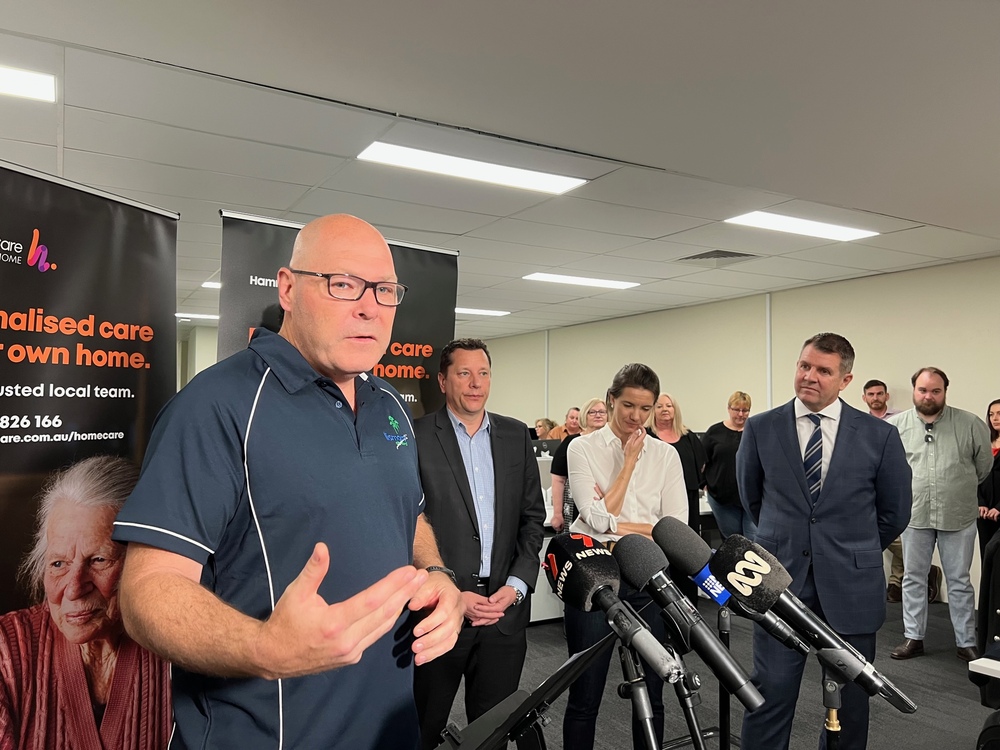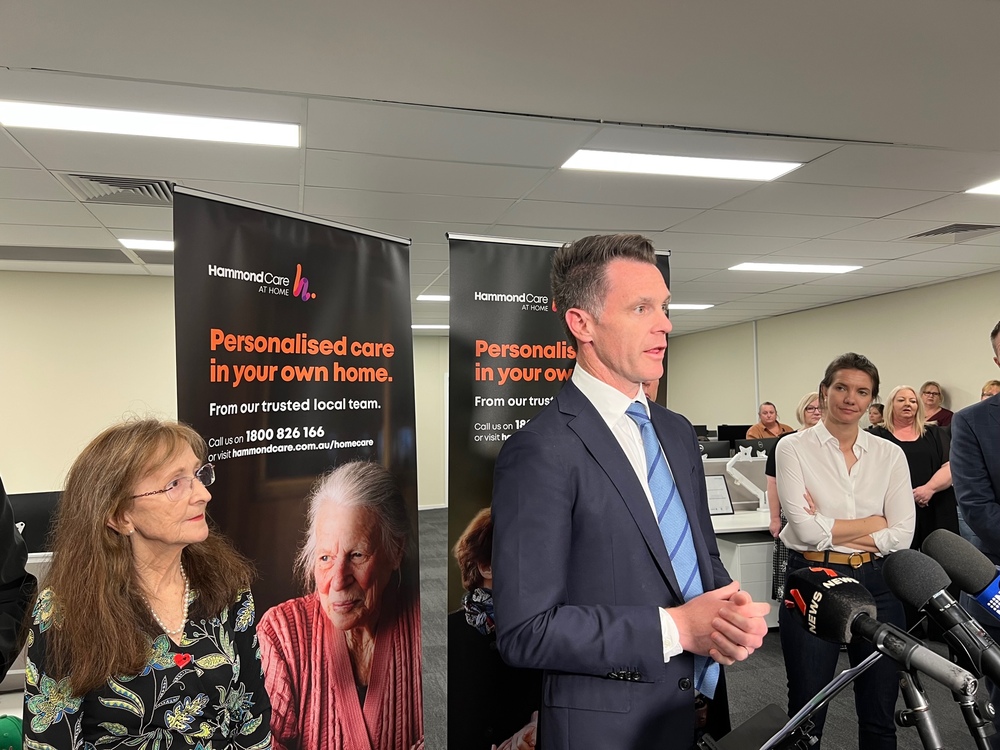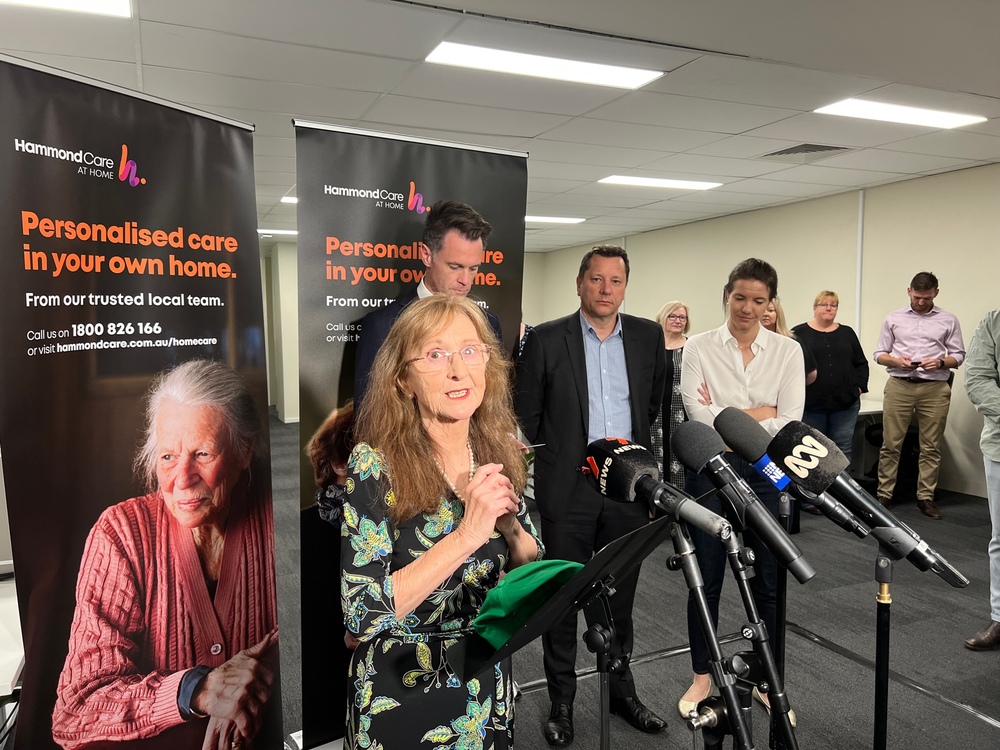Premier visits Lismore as questions get asked about Resilient Homes Program
Simon Mumford
26 September 2023, 8:00 PM
 From left - Mayor Steve Krieg, Member for Lismore Janelle Saffin and Premier Chris Minns walking down Molesworth Street
From left - Mayor Steve Krieg, Member for Lismore Janelle Saffin and Premier Chris Minns walking down Molesworth StreetThere was a cast from the NSW cabinet in Lismore yesterday when Chris Minns, Premier of New South Wales, Paul Scully, Minister for Planning and Public Spaces, Jihad Dib, Minister for Emergency Services and Rose Jackson, Minister for the North Coast joined Janelle Saffin, Member for Lismore and Parliamentary Secretary for Disaster Recovery, to discuss NSW Government support for the Northern Rivers region as we continue to rebuild following the 2022 big flood.
In fact, the joke was, that there were no parliamentarians left in Sydney.
Janelle Saffin praised former Premier Mike Baird for opening a new business in the Lismore CBD on Molesworth Street with HammondCare and how that expresses confidence in our community.
"That speaks to our recovery in a way some things don't," Ms Saffin said.
The positive rhetoric continued when the Premier said, "We're very optimistic about this part of the world. It is one of the most beautiful places on earth, not just in Australia, and we're determined that the people who live and work and start businesses and our part of the community in this part of the Northern Rivers can get back on their feet."
Then Minister Dib added, "We will continue. We said at the outset, we are here for the long run and we'll continue to do that because this community needs to survive and this community has shown strength unlike many others around the world."
Mayor Steve Krieg was next to speak, "We're bouncing back and with the confidence that organisations like HammondCare have shown in investing in the CBD and the backing of the state and federal governments, Lismore is going to be the best regional centres in Australia."

Premier Minns was then asked about Lismore's recovery in more detail, in particular, the $350 million not yet spent in the Resilient Homes Program, the nearly $100 million Tranche 2 funding and will the Northern Rivers receive the $700 million promised as Tranche 2 funding?
"Well, look, there's a couple of things that we need to work through. Firstly, in the New South Wales budget, the government committed $1.6 billion to grant programs that are contingent on emergencies or disasters across New South Wales. Now a lot of those were bills that weren't paid to councils including councils on the Northern Rivers from either the Black Summer Bushfires or the floods in the Northern Rivers."
"In addition to that, we put $100 million into the Reconstruction Authority in addition to that, we'll put $100 million for the Northern Rivers alone in terms of Tranche 2. Now, we have to work through what's going to be left over from the first tranche of money, as well as what we can get from the Commonwealth."
"I'm making a commitment that we're not walking away from Lismore, and of course, we know that more needs to be done."
"There's two issues however, firstly, we do want the Commonwealth to come to the table and I don't think that's unreasonable, for me as the premier of New South Wales, to be demanding that. This was, as Steve said, the largest and biggest natural disaster facing this country in decades, and it's appropriate that the Commonwealth government step in. Secondly, there is obviously construction capacity issues on the Northern Rivers as well. We're seeing that with the private housing market along with social housing along with reconstruction."
"So we're here for the long haul. Over and progressively we'll commit more funds to these proposals. We know this community needs us but we've made a lot of progress in a short period of time."
What about people who have been rejected from any Tranche 1 stream?

"Look, it's a definitional issue in relation to who was eligible for the first tranche and who would be eligible for the second one. Now, Janelle and Steve have been very clear with us that the communication around who would be eligible for the second round of funding was nowhere near good enough. It wasn't transparent. It wasn't clear about timelines and money and some communities that believed that they would be eligible, according to these maps weren't."
"So, we've taken that lesson on board and done two things in particular. Firstly, the head of the Reconstruction Authority is now the head of the Premier's department in New South Wales responsible not just for reconstruction on the Northern Rivers but the public service across the state. He can't get more senior in terms of the public service and there's no one more intimately aware of the challenges faced by this community than Simon. And secondly, we appointed Janelle as the parliamentary secretary, secretary for reconstruction, not just in the Northern Rivers but right across the state.
"I can promise you you've got people with sharp elbows, a lot of experience and a knowledge of what's happening at the senior levels of the New South Wales government, which is why we're here today saying this is not the end of it. We're probably just approaching the end of the beginning."
Will the government make it easier for people who have accepted a house buyback to move their house?
Janelle Saffin answered this question. "Last night with Simon Draper, the CEO of the Reconstruction Authority and the acting CEO of NRRC, we met with a range of community people, and some of that work is already being done. And over the next couple of weeks that should come to some finality. It's about the coalescing of if they need to move at a certain point and how much money can be released so they can do it. So there's a range of things some people need to stay a lot longer in their houses as well. We're working through that so that they can. So the answer is yes."
There is $350 million unspent from Tranche 1, why hasn't that been allocated?
Premier Minns: "The money has been allocated and it is available. There is a process when the government makes an offer for the individual household to make a decision about whether, ultimately, they want to move and unfortunately, because there's been an exponential increase in housing costs, particularly on the Northern Rivers, what looks good economically or financially 12 months ago may not today, and I accept that. I mean, that's a reality faced by millions of people across New South Wales. We can't let perfection be the enemy of the good. We've got to see progress. We're seeing more progress than we previously did with a lot more of attention from the New South Wales government. I think that you'll see better outcomes in the months ahead."
If there is $350 million unspent, and people waiting why can't the spending be accelerated?
"Well, a couple of things. Firstly, in terms of Trench 1, so they're the communities with the lowest level closest to the river, the most acutely affected by floodwaters and disaster. There's still more work to do there and I'd be reluctant to take the money out of that fund, and put it to other uses before we had been able to speak to everybody in those communities and ensure they've got the help that they need. They may have had difficulty engaging with the government, they may have had difficulty filling out forms. I don't think that's the answer. I think the answer is there's going to have to be more resources from the New South Wales Government and the Commonwealth Government. And if I did that, if I announced today that tranche one money would be today used for other purposes. I think I'd probably be rightly criticised by the local community. We're going to have to go to the Commonwealth Government and New South Wales will have to pony up more cash too"
If that Tranche 2 funding which was committed early on was the full $700 million again, then we wouldn't be in this situation.
"Well, that's why we're sitting down with the feds and we're committed to doing more. But I think it's reasonable, under the circumstances, to see how much is left over as well as the funds that we're prepared to commit. It's really also important to note that the entire package when it comes to resilience, and disaster recovery is $2.2 billion. It's an unprecedented amount of money that the state has put towards it. We've done that in the context of cutting $15 billion worth of outlays across the rest of government and reducing our spending in a whole range of areas. But we believe that disaster recovery and resilience was important and we've made a commitment to the Northern Rivers not to leave them behind."
What is the latest on the Resilient Lands Program?

Janelle Saffin: With the Resilient Lands Program, I know, we'd all love to know every detail yesterday, as I would, and I meet regularly with the Reconstruction Authority. It is getting closer. There are negotiations going on with landowners and they are private landowners. So I know you'd understand, I can't announce them here but I have said go as fast as we could. There's somebody actually who's managing that program and there's some good developments that we'll all be excited about when they can be announced."
"I'm told, and I'm not giving a definitive date, but I'm told sometime in October, hopefully, we'll have more on it. Because it had never been done before, it would have been great, of course, if that could have coalesced with buybacks, because I've said all that publicly, the fact is, it couldn't happen. But there will be some land and we'll have land available right across the Northern Rivers but particularly in the Lismore area, too. So it means there won't be people having to go away."
"The way I see it, some of them will come online one after the other because it'll be a process of negotiation. Lismore City Council have put some land forward as well and that's being worked through now with the council with the Council officers."
What will happen to the POD Villages?
Janelle Saffin: I'm in a conversation with the Minister about that. With the mayors and the local members, in a week's time, we're having a roundtable conversation about the future and we're in conversation with the Minister about some longer-term planning around it. My understanding is they can be let for up to five years, there's a five-year timeframe. So it's not just a couple of years. So, we're working through that now."
There were many more questions to be asked, however, the media questions were stopped after 30 minutes.
SHOP LOCAL
